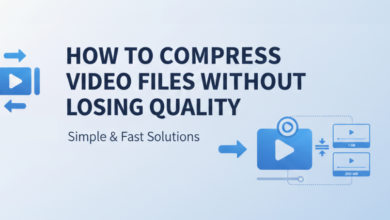Top 5 Field Service Management Software Solutions for 2025

On a typical day, your technician runs late, your customer calls every fifteen minutes asking “where’s my guy?”, and your dispatcher juggles phone calls while trying to reschedule three other appointments.
This scenario plays out thousands of times daily across service businesses, and it’s exactly what field service management (FSM) software is designed to eliminate. With the FSM market estimated at $5.52 billion in 2025 and expected to reach $9.60 billion by 2030 (growing at 11.7% annually), it’s clear that businesses are investing heavily in solutions to these operational challenges.
But the question that matters is, “How do you choose the right platform when your business operations, customer experience, and bottom line all hang in the balance?”
Let’s explore this together by examining what makes FSM software truly effective, then diving deep into five leading solutions with special attention to why Arrivy has emerged as the standout choice for modern service operations.
What Does Your Operation Actually Need?
Before we jump into specific platforms, consider what’s the biggest pain point in your current workflow? Is it:
- Constant “where’s my technician?” calls from anxious customers?
- Dispatchers drowning in manual scheduling problems?
- Technicians struggling with clunky mobile apps and paperwork?
- Billing delays because job documentation is scattered or incomplete?
Your answer shapes everything. The best FSM software isn’t the one with the most features but the one that solves your specific operational challenges while setting you up for growth.
In-Depth Analysis: The Five Leading FSM Solutions for 2025
- Arrivy
Best for: Mid-size to large operations that need sophisticated dispatch management combined with modern customer communication features.
Arrivy focuses on giving dispatchers comprehensive control while automating customer communications. The platform combines drag-and-drop scheduling, real-time tracking, and automated notifications in a unified interface.
Key capabilities: Visual dispatch dashboard, route optimization, digital forms with photo capture, automated SMS/email notifications with live tracking, self-scheduling for customers, integrations, and a mobile app for technicians.
Unique aspect: Limited-access user pricing model that scales with full-access seats. Each full-access user includes 2 field (limited-access) users at no extra cost for basic mobile functionality.
Investment: Standard plan around $75/month (3 full users + 2x limited-access users), Premium plan around $150/month with advanced features, Enterprise plan offers custom pricing for complex operations.
Why this pricing model works: Most platforms charge per user, making growth expensive. Arrivy’s limited-access user model means your field team can stay connected without breaking your budget.
- Housecall Pro
Best for: Home service professionals and small trades who need something that works out of the box.
Housecall Pro understands small business realities and lets you start booking jobs immediately without spending weeks on setup. The platform combines basic scheduling with invoicing and payments in a mobile-first design.
Standout features: Map-based dispatch, on-the-spot payment processing, automated appointment reminders.
The tradeoff: Simplicity comes at the cost of advanced features. As your business grows, you may outgrow the platform’s capabilities.
Investment: Starting around $59/month for single users, scaling to $149/month for small teams.
- ServiceTitan
Best for: Large HVAC, plumbing, and electrical companies with complex operational needs.
ServiceTitan is a complete business management ecosystem. It offers dispatch, accounting, payroll, marketing automation, and deep reporting all in one platform.
The reality check: This power comes with complexity. Implementation takes months, training is extensive, and the learning curve is steep. But for large operations that need every bell and whistle, ServiceTitan delivers.
Investment: $125-$398 per technician monthly, depending on modules and scale.
- Jobber
Best for: Small-to-medium service companies that prioritize ease of use over advanced features.
Jobber’s philosophy is to simply make common tasks fast and intuitive. Quoting, scheduling, invoicing, everything focuses on reducing clicks and cognitive load.
The appeal: New users become productive immediately. The mobile app is genuinely simple, and basic automation handles routine tasks.
The limitation: Advanced routing, complex scheduling scenarios, and enterprise integrations aren’t Jobber’s strong suit.
Investment: $39 per user monthly for entry plans, scaling with features and users.
- ServiceFusion
Best for: Teams with many technicians who want to avoid per-user pricing escalation.
Key features:
- Scheduling and dispatch with mobile technician app
- Invoicing, payment processing, and QuickBooks sync
- Job costing and basic reporting
- Add-on GPS fleet tracking
ServiceFusion’s unique selling point is unlimited users on several plans. It’s attractive for operations with large field teams.
The consideration: While unlimited users sound appealing, the base pricing is higher than alternatives, and advanced features require premium tiers.
Investment: Starting around $245/month (or $208/month annually) for unlimited users.
See also: Edge Detection and Object Isolation Techniques: A Guide to Cleaner Visuals
How to Choose the Best FSM Software for Your Business?
Now comes the crucial question, “How do you determine which platform fits your specific situation?” It is extremely important to choose a solution that aligns with your business reality and growth trajectory. Here are the critical factors to evaluate:
Company Size Considerations
- Small businesses (1-10 technicians): Prioritize ease of use and quick implementation. Platforms like Jobber and Housecall Pro offer immediate value without overwhelming complexity.
- Mid-size operations (10-50 technicians): You need scalability and advanced features. Arrivy and ServiceFusion provide room for growth while maintaining operational control.
- Enterprise operations (50+ technicians): Complex routing, advanced reporting, and deep integrations become essential. ServiceTitan and Arrivy’s enterprise plans handle sophisticated requirements.
Budget Reality Check
Consider total cost of ownership, not just monthly fees:
Entry-level: $30-60 per user monthly (Jobber, basic Housecall Pro)
Mid-tier: $75-150 per month for multiple users (Arrivy, advanced Housecall Pro)
Enterprise: $125-400+ per technician monthly (ServiceTitan, enterprise tiers)
| Remember:Cheaper platforms often mean higher administrative costs and limited growth potential. |
Industry-Specific Needs
Home services and trades: Customer communication and payment processing are crucial. Housecall Pro and Arrivy excel here.
HVAC/Plumbing/Electrical: Complex job costing and inventory management matter. ServiceTitan and Arrivy’s premium plans handle these requirements.
General field services: Focus on dispatch efficiency and mobile functionality. Arrivy and Jobber provide strong foundations.
Integration Requirements
Evaluate how well each platform connects with your existing systems:
CRM integration: Essential for maintaining customer relationships
Accounting software: Critical for seamless billing and financial reporting
Payment processing: Important for cash flow and customer convenience
Storage systems: Necessary for job documentation and compliance
Arrivy stands out with robust API access and pre-built connectors, while ServiceTitan offers deep integrations for larger operations.
Free Trials and Demos
Never commit to an FSM platform without hands-on testing. Here’s how to maximize your evaluation:
- Request demos from your top 2-3 choices. Focus on your specific workflows instead of generic presentations.
- Start free trials with real data. Have your actual dispatchers and technicians use the platforms during normal operations.
- Test integration capabilities with your existing CRM and accounting systems. Verify that data flows correctly both ways.
- Evaluate customer-facing features. Send test notifications, try the tracking links, and assess the booking experience.
The decisive factor:
Which platform makes your team more effective while requiring the least training time? That’s usually your answer.
Why Arrivy Leads the Pack: A Complete Picture
After analyzing hundreds of FSM implementations, one pattern emerges consistently:
“The platforms that balance operational control with customer experience deliver the best long-term results.”
While most FSM platforms treat dispatch management and customer experience as separate challenges, Arrivy recognizes they’re intimately connected. As a result, the platform gives dispatchers unprecedented control while delivering the modern, transparent experience today’s customers demand.
This is where Arrivy truly differentiates itself. It was built with a fundamental understanding that your dispatchers need powerful tools, your technicians need simple workflows, and your customers need transparency.
What Makes Arrivy Different?
- Dispatch Control That Actually Works
Think about your busiest dispatch day. Arrivy provides a single dashboard where you can see every technician’s status, drag-and-drop reschedule appointments, and automatically notify customers, all without picking up the phone. The dispatch interface is intuitive enough that new dispatchers become productive within hours, not weeks.
- Customer Experience That Reduces Call Volume
Arrivy truly excels at providing automated SMS notifications with real-time tracking links. Customers receive ETAs, can watch their technician’s approach on a live map, and get updates automatically. As a result, those “where’s my guy?” calls simply stop happening.
- Mobile App That Technicians Love to Use
The mobile app captures everything (photos, signatures, time tracking, job notes) without feeling like an administrative burden. Forms are digital, data syncs automatically, and technicians can see their optimized routes and update job status with a tap.
- Integration Capabilities That Connect Your Entire Stack
Arrivy offers integrations that provide meaningful connections with your existing CRM, accounting software, storage systems, and payment processors. Beyond pre-built connectors, the platform offers API access for custom workflows and team collaboration tools. It ensures your FSM solution works with your tech stack rather than replacing it.
- Smart Pricing Model for Growth
While most platforms charge per user (making growth expensive), Arrivy’s limited-access user model means your field team can stay connected without escalating costs. You pay for full-featured dispatcher/manager accounts, but field technicians access mobile functionality without additional per-user fees.
Consider Arrivy your top choice if you:
- Handle moderate to high job volumes
- Want to differentiate through customer experience
- Need dispatch flexibility without complexity
- Plan to grow your operation significantly
- Value platforms that make your team more productive rather than just busier
In user reviews, Arrivy is praised for simplifying operations. Customers note that Arrivy’s cloud platform essentially “liberates businesses from manual processes and outdated systems” by connecting the office, field teams, and customers effectively.
In short, Arrivy is well‑suited for mid‑sized fleets or operations that need robust scheduling plus mobile forms and tracking. Its user-centric approach and modern UI make it a strong contender for businesses prioritizing transparency and flexibility.
Final Thoughts
The platform that reduces your daily operational headaches while improving customer satisfaction wins every time. Choose an FSM software that transforms your operation from reactive to proactive and from administrative burden to competitive advantage.
Arrivy consistently delivers this transformation because it understands that great field service is about creating experiences that keep customers coming back while making your team’s job easier, not harder.
Frequently Asked Questions
What is Field Service Management (FSM) software?
It is a software that schedules, dispatches, tracks, and documents work for mobile field teams, replacing paper and phone calls with digital jobs, mobile apps, and automated customer updates.
How much does FSM software typically cost?
Small-business plans often start under $50/month per user; mid-tier options like Arrivy begin around $75/month, and enterprise platforms can run $125–$400+ per technician/month depending on features.
Which FSM software is best for small businesses?
Jobber and Housecall Pro are top picks for small teams (ease + low cost); consider Arrivy if you need stronger dispatch, routing, and customer-facing live tracking as you scale.





